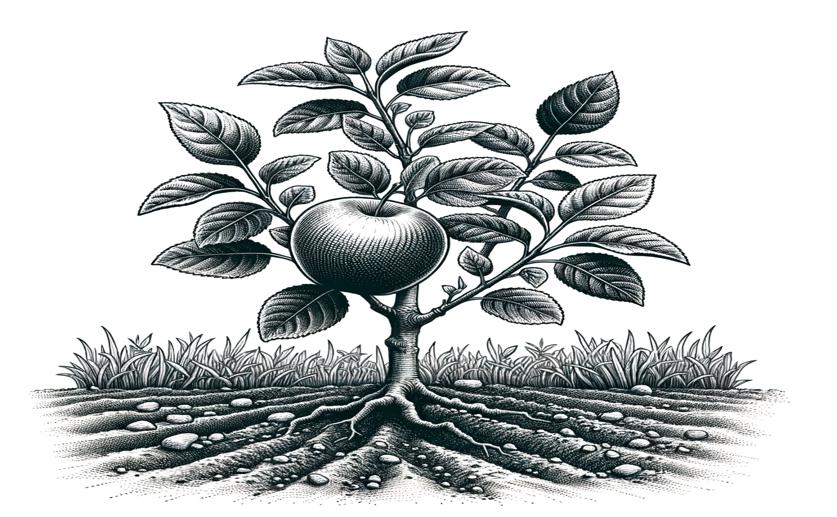
How Apple Plants Adapt to Low Phosphorus Stress through SPX Genes
Jim Crocker
17th May, 2024

Image Source: Natural Science News, 2024
Key Findings
- The study from the Shandong Institute of Pomology focused on apple plants and their response to phosphorus deficiency
- Researchers identified 26 SPX genes in apple plants that play a crucial role in phosphorus signaling
- These genes help apple plants adapt to low-phosphorus conditions, improving growth and yield even when phosphorus is scarce
GeneticsPlant ScienceEvolution
References
Main Study
1) Evolution of the SPX gene family and its role in the response mechanism to low phosphorus stress in self-rooted apple stock
Published 16th May, 2024
https://doi.org/10.1186/s12864-024-10402-2
Related Studies
2) Tightening the Phosphorus Cycle through Phosphorus-Efficient Crop Genotypes.
3) Phosphate nutrition: improving low-phosphate tolerance in crops.
4) Insights into plant phosphate sensing and signaling.



 19th April, 2024 | Greg Howard
19th April, 2024 | Greg Howard